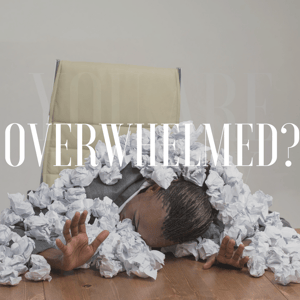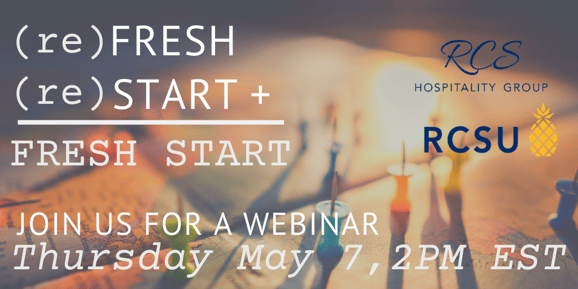In a conversation recently, “The Great Pause” was used to describe how we will remember this period of our lives.
It is certainly reflective of how my personal life has been affected and I’ve made a concerted effort to document how we are spending our days, thoughts and concerns that weigh on our hearts and minds, and newspaper clippings (yes, we still have the WSJ delivered to our home daily). I’ve even carved out time for my 10-year-old son to write in his journal about what we do during the day, what he misses about life before the COVID-19 Pandemic and any thoughts he might have either positive or negative. “Someday,” I keep telling him, “this will be something your children study in school and it will be so interesting when you can share with them your journal as you lived through it.” And all of this got me thinking… Are clubs actively documenting how the Pandemic of 2020 is affecting them for their club archives?
 If you’re a club manager I’m guessing this isn’t something you’ve given much thought to lately amid trying to salvage jobs and pivot operations creatively to keep members engaged and both member and employees safe and secure. But, if I can encourage you to pause for a moment and at the very least assign someone to take the lead, I assure you won’t regret it.
If you’re a club manager I’m guessing this isn’t something you’ve given much thought to lately amid trying to salvage jobs and pivot operations creatively to keep members engaged and both member and employees safe and secure. But, if I can encourage you to pause for a moment and at the very least assign someone to take the lead, I assure you won’t regret it.
The reality is, we are living in a historic moment with the pandemic impacting every member, every employee, and every aspect of our daily operation and personal lives. Club members and leaders down the road will want to understand not only the response on a state and local level, but also how your club dealt with COVID-19. Clubs regularly struggle to find accurate resources pertaining to decisions made and the thought process by which conclusions were contrived. Club leaders can create resources for the future on how the club responded, how members and employees reacted to the pandemic, emotions during the event and how it impacted the club in both positive and negative ways.
If you already have a Club Historian, this is the perfect opportunity for them to organize an initiative to document the crisis. If you don’t have an appointed historian, it doesn’t have to stop you from collecting the information now, while emotions are raw and we are ‘in the moment’.

I recently visited with a special acquaintance of mine, noted historian, Neal Hotelling. Neal has studied the history of Monterey Peninsula in California for over three decades. The books he has authored include Pebble Beach: The Official Golf History and he also writes a weekly history column for the Carmel Pine Cone. I had the pleasure of getting to know Neal during my years as a manager at Monterey Peninsula Country Club in Pebble Beach where I helped to form the first Historical Committee, organize club archives, and oversee the research and publishing of the Club’s history book in 2017.
The current pandemic led him to write a column on the Spanish Influenza and its effects on the Monterey Bay area. During our recent conversation, he shared with me that even though Pebble Beach Golf Links opened only a few short weeks following quarantine lifts in the area, he had never before considered the impacts of the pandemic on the resort. He shared with me a newspaper clipping from November of 1918 in which the resort’s Hotel Del Monte re-opened their bathhouse after a period of being closed and celebrated with a large gala ball. Guests were required to wear face masks with the threat that if the masks came off, the music would stop! Neal went on to tell me they were premature in reopening as flu cases spiked a week later and the hotel and other businesses were forced to close again until the following year. Neal mentioned that he was amazed, given all his previous research on the resort, he had never come across any documentation as to whether the resort’s Del Monte Golf Course (est. 1897) was affected by the flu.
I asked Neal what he would recommend to club leaders during this crisis if they’re not sure how or where to start when it comes to documenting history in “real time”. Here are some ideas we came up with for clubs to consider:
- Involve Your Community:
Communicate to the membership and employees the desire to create a record for the club’s archives of how the pandemic has affected their daily lives. Encourage them to submit anything from diary entries, interviews of one another’s perspectives, newspaper clippings, photographs, etc. - Assign someone to lead the effort:
Whether it be a volunteer member(s) or an appointed manager on staff, it helps to have someone serve as point of contact and be responsible for documenting and organizing materials when they come in. - Interview Key Players:
Interview board members and your leadership team for oral histories. This can be done either in writing, audio recording or video or a combination of all three. - Collaborate with Your Community:
Consider contacting a local museum in your area. They have access to resources that may be able to assist your efforts. - Create a Timeline:
Print out emails that document the timeline of how the pandemic evolved, which will allow future club leaders to see how rapidly the environment changed, what information was exchanged in the course of deciding how to respond, and how operations were staged when re-opening.
Ultimately, the goal is to be able to give an accurate perspective of how the crisis affected the club, members and employees and the lessons learned during this time. The opportune time is now, while we are in the moment.

As we continue our series, The Way Forward, we invite you to join us for a webinar on May 7th at 2pm EST. Whitney Pennell and Rachel Carter will be covering how to incorporate virtual training into your re-opening plans to help tackle orientation, onboarding, and efficient staff and management training and ensure a successful re-opening!









